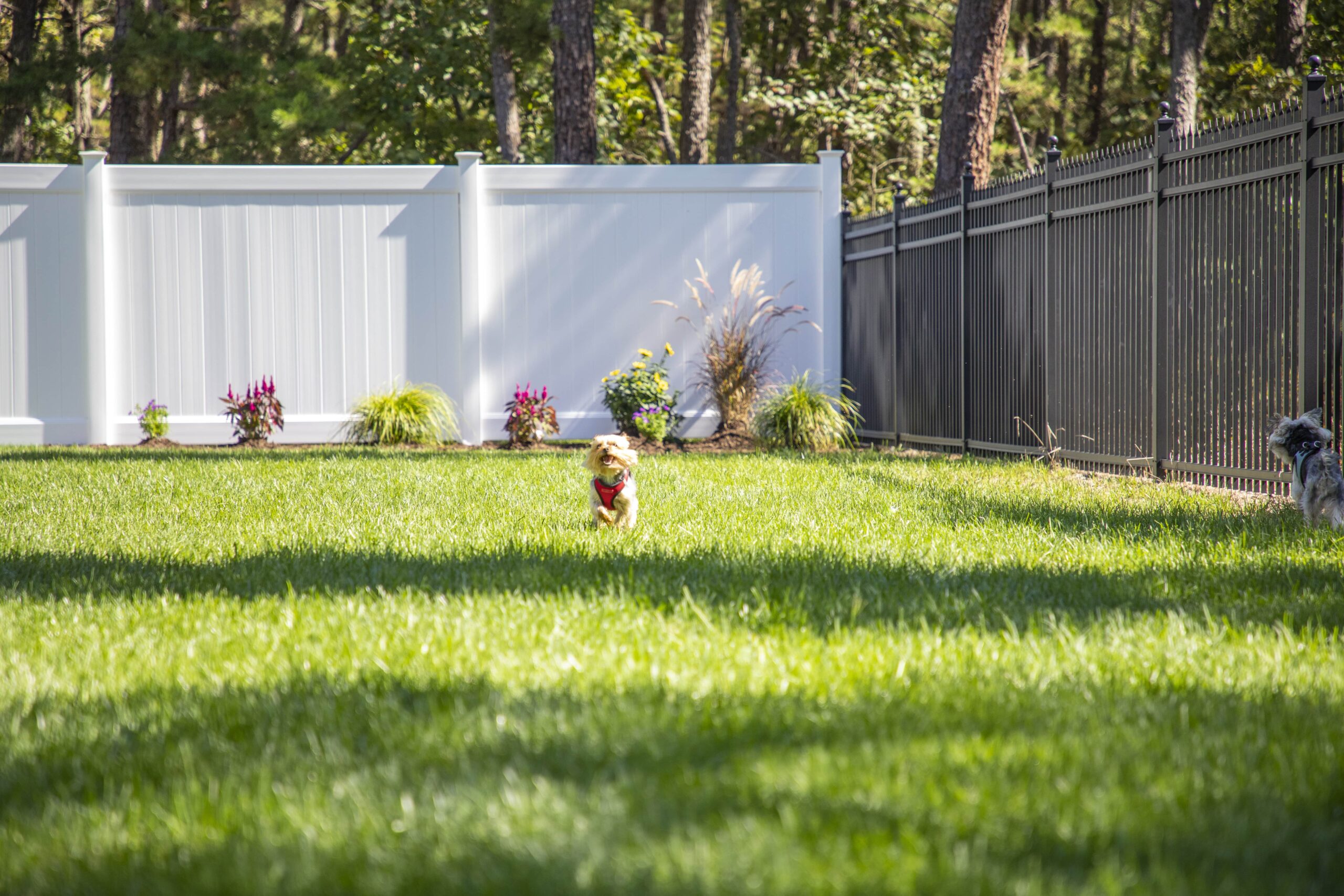All Categories
Featured

When mounting a fencing, picking the ideal material is crucial to balancing performance, looks, and budget plan. Wood, vinyl, and aluminum are among the most typically picked secure fencing products, each with its staminas and disadvantages. This guide checks out the pros and disadvantages of these alternatives to help you make a notified choice.

Wood Fence. Pros:. Natural Elegance: Timber's classic beauty can improve any type of residential or commercial property with its cozy and classic look. Customizable: You can paint, stain, or sculpt wood to fit your design preferences. Economical: Wood fencing is originally extra economical contrasted to a few other products. Eco-friendly: As a renewable energy, timber is eco-friendly and typically thought about green. Disadvantages:. Maintenance-Intensive: Normal securing, painting, or staining is called for to stop damages from climate and bugs. Prone to Degeneration: Without appropriate treatment, wood can rot, warp, or split in time. Shorter Lifespan: Usually, wood fences last 10-15 years, depending on the sort of wood and maintenance. Wood is a great alternative for those that value aesthetic appeals and want to purchase routine upkeep to maintain its appearance and resilience.
Plastic Secure Fencing. Pros:. Low Upkeep: Plastic needs marginal care-- simply periodic cleaning with soap and water. Climate Resistant: It does not warp, rot, or catch insect damage, making it extremely long lasting in various climates. Longevity: Plastic fences can last 20-30 years with little to no repair work. Layout Selection: Available in a large range of colors, appearances, and styles, including wood-like appearances. Cons:. Greater Preliminary Price: Vinyl fences are more costly upfront contrasted to wood. Vulnerability to Cold: In extremely winter, plastic can end up being brittle and susceptible to breaking. Limited Repair Options: Matching replacement panels can be testing if damages takes place. Vinyl fencing is optimal for home owners searching for a lasting, low-maintenance option that provides modern convenience.

Light Weight Aluminum Secure Fencing. Pros:. Rust-Proof: Light weight aluminum withstands corrosion, making it an exceptional option for moist or wet atmospheres. Durable: Despite being lightweight, aluminum is strong and can endure severe climate condition. Reduced Upkeep: It needs marginal upkeep, generally only occasional cleaning. Long Life-span: Aluminum fencings can last decades without substantial wear and tear. Classy Design: Frequently utilized for ornamental purposes, aluminum fencing adds a smooth, sophisticated seek to buildings. Disadvantages:. High Initial Financial investment: Aluminum fences are amongst the costlier alternatives on the market. Less Privacy: The open styles usual with light weight aluminum secure fencing don't supply much personal privacy. At risk to Damages: While durable, light weight aluminum can dent if hit with enough pressure. Aluminum is an exceptional choice for house owners prioritizing appearances and sturdiness without calling for much upkeep.
Making Your Choice. When deciding between vinyl, aluminum, or timber secure fencing, consider your concerns:
Timber matches those who appreciate a natural appearance and do not mind placing in maintenance initiative. Vinyl is the very best choice for those seeking a low-maintenance, weather-resistant service. Aluminum provides streamlined design and lasting toughness however might do not have privacy. By very carefully assessing these products' functions, you can pick a fencing that matches your property while fulfilling your aesthetic and practical needs.
Latest Posts
The Benefits of Routine Vehicle Maintenance at Montclare Auto Repair Saves You Money
Published May 26, 25
1 min read
Choosing the Right Roofing Color: Influence On Power Effectiveness
Published May 24, 25
1 min read
Boost Your Home's Outside with Weathercraft's House siding Solutions
Published May 24, 25
1 min read
More
Latest Posts
The Benefits of Routine Vehicle Maintenance at Montclare Auto Repair Saves You Money
Published May 26, 25
1 min read
Choosing the Right Roofing Color: Influence On Power Effectiveness
Published May 24, 25
1 min read
Boost Your Home's Outside with Weathercraft's House siding Solutions
Published May 24, 25
1 min read